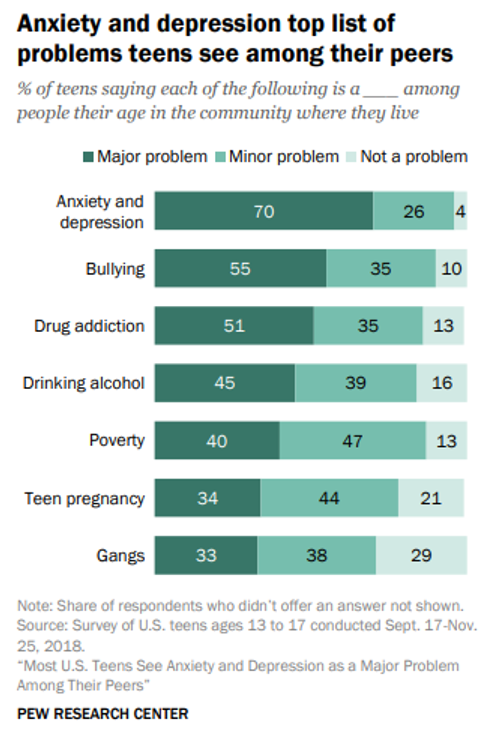 Back in February, the hashtag #ilovepublicschools trended on Twitter, but for reasons not intended by the originators. Many students used the hashtag as a vehicle to speak out about the bullying, homophobia and depression experienced by their peers.
Back in February, the hashtag #ilovepublicschools trended on Twitter, but for reasons not intended by the originators. Many students used the hashtag as a vehicle to speak out about the bullying, homophobia and depression experienced by their peers.
This startling phenomenon encouraged a deeper look at the data, as well as realization of the fact that anxiety and depression were maladies spreading among American teens before the pandemic.
A fall 2018 Pew Center survey of teens 13 to 17 years old queried them on a variety of issues and asked them to describe those issues as “not a problem, a “minor problem” or a “major problem” among people their age in their community. Seventy percent of teens declared anxiety and depression a major problem; only 4 percent said it was not a problem.
Stark as these numbers are, they don’t suggest that the school system was the problem. Studies have linked teen use of social media to anxiety and depression, especially among teenage girls. Going forward, the idea should not be to assign blame but rather to improve matters.
For every teen in the Pew survey who said bullying was not a problem, 5.5 teens said it was a major problem, indicating a massive bullying issue. Indicative of another major issue is the fact that for every student surveyed who said drug addiction was not problem, four said that it was.
Many students seek transfer opportunities for social rather than academic reasons. A productive line of inquiry for researchers would be to compare the survey results on these topics for students who have had the chance to avail themselves of such opportunities to those who have not.
The opportunity to transfer out of a bad situation may not be a perfect solution in all cases, nor should ensuring it for all students represent the totality of our efforts. It almost certainly, however, improves the lives of a great many students.
When we (finally) get past the current epidemic, this previous one will still be there waiting for us.


